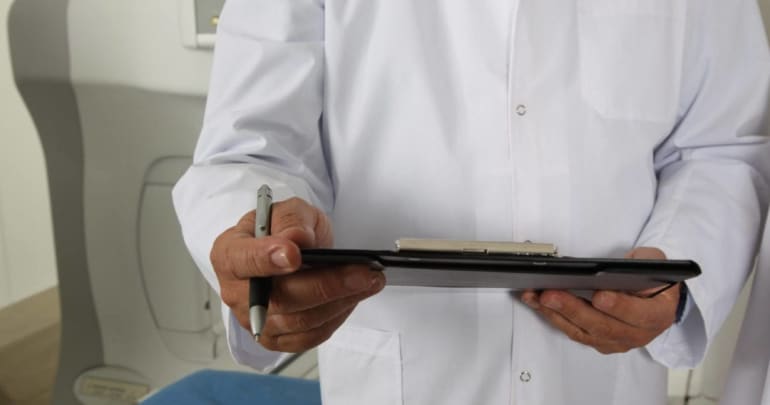If you or a loved one has ever tried to quit drugs or alcohol cold turkey, you may have come face to face with the harsh reality of withdrawal symptoms. Many find the painful symptoms and overwhelming cravings too strong to overcome alone—not because they are morally weak but because their body has developed a real chemical dependency on an addictive substance.
Medically supervised detox is an opportunity to get through that withdrawal period with as little discomfort and as much support as possible, greatly increasing the likelihood of a successful recovery.
Read on to learn more about detox and how it can help you or your loved one overcome addiction.
Withdrawal from an Addictive Substance
To understand detox, you must first understand withdrawal. Withdrawal is the period of time when your mind and body are learning to adjust without an addictive substance. When your body is used to a particular drug or alcohol, it develops a physical and psychological dependency on that substance. For some substances, this dependency can develop after just one or two uses, while others only lead to dependency after frequent use over an extended period of time.
The symptoms of withdrawal vary by drug and an individual’s health background, but they are often extremely uncomfortable. For example, withdrawal from alcohol can be marked by nausea or vomiting, anxiety, hallucinations, tremors, and seizures. Heroin withdrawal symptoms can include sweating, aching muscles, runny nose, insomnia, agitation, and anxiety. Those addicted to opiate painkillers often experience bone and joint pain, aching muscles, a severe return of the pain they originally aimed to treat, depression, and suicidal thoughts or behaviors.
Some drugs, such as methamphetamines or cocaine, don’t have these intense physical symptoms, but the psychological withdrawal can be just as difficult. Psychological symptoms include overwhelming cravings, anxiety, depression, and suicidal thoughts or attempts.
In some cases, without proper medical attention, withdrawal can be fatal if an addict attempts to quit a particular substance too quickly, failing to give the mind and body an appropriate period of time to adjust.
The length of withdrawal and the symptoms you experience can depend on your level of dependency, your health background, the half life of the substance, and more. It’s important to have the support of medical professionals who can help you navigate your personal journey through withdrawal.

Many avoid getting sober to avoid the alcohol withdrawal symptoms. Learn more about what withdrawals look like and how you can finally put a stop to them.
More infoUnderstanding Medically Supervised Detox
The discomfort and dangers of withdrawal often prevent many people from attempting or successfully completing detox on their own. However, medically supervised detox minimizes both the discomfort and the danger by ensuring medical professionals monitor you for signs of danger and help you manage uncomfortable symptoms as you wean your body off of drugs or alcohol safely.
One way to manage painful withdrawal symptoms is to use suboxone or other pharmaceutical support. Here at Hawaiian Island Recovery, our addictionologist can help you determine which, if any, medications are safe and effective for your detox.
Even if medication isn’t the right choice for you, we can help minimize your symptoms by guiding you through a detox plan that’s catered to your individual needs. We can help you determine whether a cold turkey detox, short term detox, or long term detox will be best for your health and increase your likelihood of a permanent recovery—then provide the support you need to successfully complete that plan.
After Detox
While detox is an important first step, it is just the beginning of your journey to recovery. The goal of detox is to wean you off of an addictive substance as safely and with as little discomfort as possible. It does not, however, address the underlying causes of your addiction or give you the tools to avoid relapse in the future.
After detox, you’ll need to undergo additional therapy. Here at HIR, we offer a mixture of evidence-based therapies and experiential therapies designed to guide you towards a holistic recovery for long-term success. A typical day at HIR includes 12 step meetings, individual therapy, group therapy, body work (such as massage and acupuncture), and nutritious meals.
Even after residents leave our program, they continue to receive our support for a life of health and sobriety. Program Director Eliza Wille explains,
“When we make a commitment to a client, we see that through. We want their lives to become the success that they envision. Through phone calls and ongoing messages, we’re here for clients for the long haul. That’s our commitment.”
Detox Safely in Hawaii
If you or a loved one is addicted to drugs or alcohol, don’t try to face and overcome the difficult period of withdrawal at home. Our staff of licensed professionals is available and eager to help you recover through detox, therapy, and beyond.
To learn more, call us today at 866-491-8009.
 Hawaii Island Recovery
Hawaii Island Recovery 










